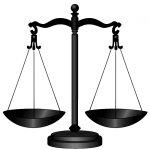Form C: Appeal to the SBSA
Information Box Group

Deadline to file the Form C
Students have THREE (3) WEEKS FROM RECEIPT of the decision to file the Form C with the University Secretariat.
Decisions that may be appealed to the SBSA:
- Academic Integrity decisions made by a Faculty Adjudicator
- Form B Formal Inquiry decisions
- Code of Student Rights and Responsibilities – decisions of the Dean of Students that impose a sanction of suspension, expulsion, or involuntary withdrawal (for violations that do not involve Sexual Violence, Discrimination, and/or Harassment.

Important things to know about filing an appeal
An appeal to the Senate Board for Student Appeals (SBSA) is the final step a student may take within the University to secure a remedy.
The decision from a lower level stays in effect unless and until it is overturned on appeal. This means that submitting an appeal will not prevent the decision being appealed from being carried out.
The Student Appeal Procedures do not apply to matters within the jurisdiction of the the Discrimination and Harassment Policy and the Sexual Violence Policy.

Onus, burden of proof, and basis of decision
A prima facie case means a case which, after assuming the validity and credibility of the summarised testimony, otherwise meets the burden of proof for establishing a successful appeal.
In any appeal, the Appellant shall bear the onus of showing that an injustice or error has occurred at the level of the decision being appealed.
This means that the Appellant must present their arguments to support their belief that the Respondent’s decision was unfair, unreasonable or unjust, within the context of the relevant Policy under which the initial decision was made.

How long does an appeal normally take?
Hearings are normally scheduled ANYWHERE FROM THREE TO SIX MONTHS after receipt of the appeal. However, some Hearings may be scheduled beyond six months from receipt.
Why does it normally take 3-6 months to schedule a hearing? The Respondent must be sent the appeal and has to provide a response to the appeal, which usually takes a minimum of four weeks. The process of scheduling the hearing can only begin after both parties submissions have been received as:
- the number of witnesses being called by both parties determines how much time is required for the hearing; and
- if the parties are being represented by counsel, or accompanied by an Advisor, the availability of those individuals must also be considered in the scheduling process.
Information Box Group

Academic Integrity Appeals Summary of SBSA decisions for Academic Integrity appeals
Students are strongly advised to review the Academic Integrity Policy and the relevant sections when preparing their appeal. Specifically, students should review the definition of academic dishonesty, and Appendix 4: General Penalty Guidelines.
Students must provide their arguments explaining why they believe the Faculty Adjudicator decided the matter and/or applied the penalty guidelines in the Academic Integrity Policy in an unfair, unreasonable or unjust way.
Students should be aware that an appeal that only contains a request for leniency, and fails to advance any arguments to support their belief that the Faculty Adjudicator’s decision was unfair, unreasonable or unjust, may result in a summary dismissal.
Information Box Group
THINGS TO KNOW ABOUT THE HEARING
ELECTRONIC HEARINGS: Electronic Hearings are the default method for hearings before SBSA tribunals. Zoom is the online platform that the SBSA uses for conducting electronic hearings.
CALLING WITNESSES: Parties are responsible for contacting their own witnesses and for making all arrangements for witnesses to attend the hearing.
TESTIFYING: Any person appearing before the tribunal as a witness (including the Appellant and the Respondent) shall be required to give evidence under affirmation. They will be asked to state their name for the record. The witness will then be asked: “Do you solemnly affirm that the evidence that you are about to give shall be the truth, the whole truth and nothing but the truth?”
DURATION: Hearings usually scheduled for a half-day (4 hours) or a full-day (8 hours). Some hearings may require multiple dates.
Information Box Group

SUBMITTING YOUR APPEAL FORM C - Appeal to the SBSA (pdf)
Your appeal may be submitted to the HEARINGS EMAIL. Or you may request an upload link (before the due date).
The appeal must be submitted to the University Secretariat within three (3) weeks of receipt of the decision being appealed.

YOUR APPEAL SUBMISSION MUST INCLUDE
- a statement (description) of the grievance;
- the precise GROUNDS for the appeal;
- the relief sought;
- preference for closed or open hearing;
- the name of Appellant’s advisor or counsel, if applicable (include the contact form);
- a COPY OF THE DECISION being appealed;
- the names of witnesses to be called;
- will-say statements for each witness – will-says are written by the Appellant and are a brief summary (typically a few sentences) identifying the relevant information that the witness is expected to testify to; and
- any documents the Appellant wishes to submit as evidence in support of the appeal.

ADVISOR / LEGAL COUNSEL ADVISOR/COUNSEL CONTACT FORM
Appellants have the right to be represented by Legal Counsel OR be accompanied/assisted by an Advisor (e.g. friend, family member, or colleague)
The Advisor/Counsel Contact Form would need to be completed if the Appellant has chosen to be represented/accompanied.
